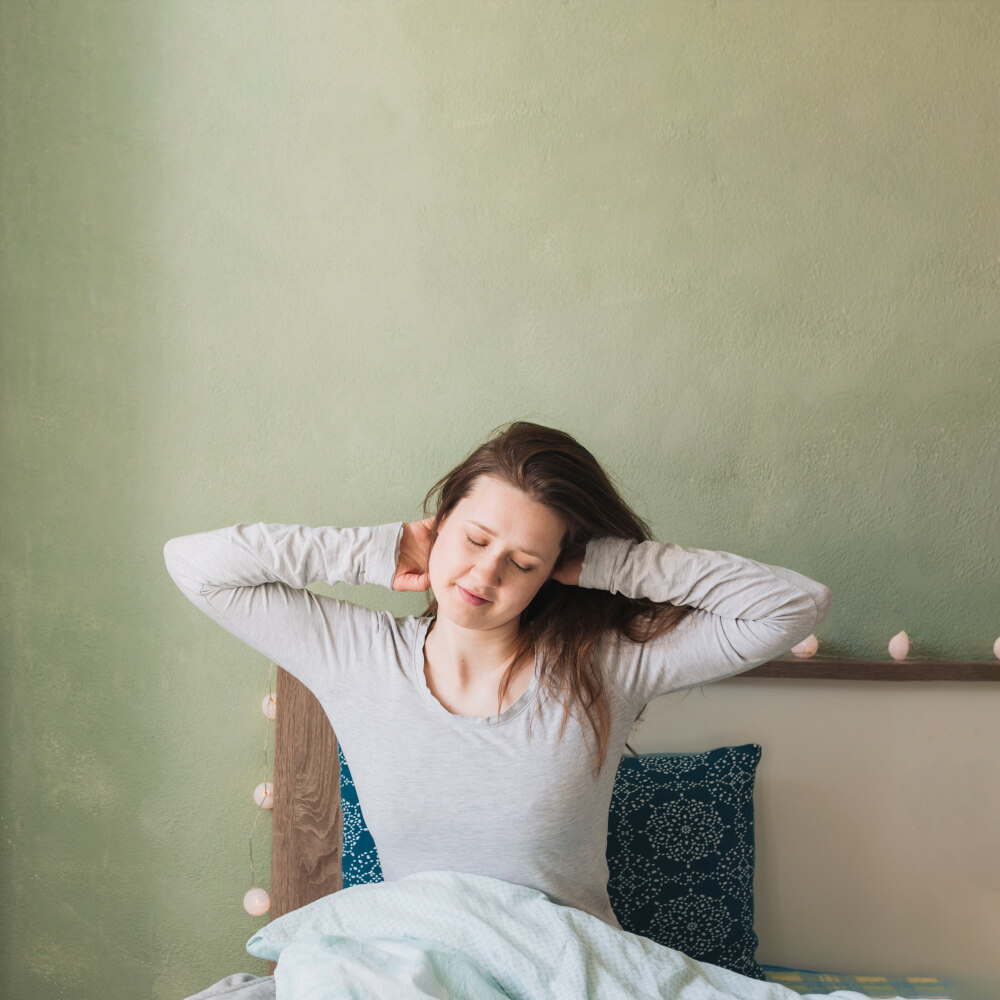There are two types of people in this world. Some effortlessly wake up hours before their days begin and have consistent morning routines, like exercising, making breakfast, journaling, or reading. Then, there are others who have multiple alarms in the morning and still roll out of bed at the very last second before getting ready for the day (hi, this is me). Most people in the latter group prefer to stay up at night to get stuff done. However, now that companies are allowing employees to come back into the office and students are going back to school, those late nights may no longer be in your best interest anymore.
After many of us have been working from home for over a year and have erratic sleep schedules due to the pandemic, we understand the struggle of getting back to your pre-pandemic routine of waking up early, commuting, and going to work or school. If you’re wondering how you can ease back into that lifestyle, two mental health experts and a life coach share tips for exactly how to do this, including the benefits of being a morning person.
What are the benefits of becoming a morning person?
Aside from waking up in time for your day without feeling tired or groggy, there are many benefits of being a morning person. Mentally and emotionally, Dr. Haley Perlus, a psychologist with a Ph.D. in sport and performance psychology, says that waking up early to complete your tasks can help give you a more positive mindset throughout your day. “A sense of accomplishment at the start of the day creates energy that can carry through the rest of the day,” she says. “When something negative happens [during a productive day], you are more set up to stay positive and optimistic than if you hadn’t been that way already in the morning.” Studies also show that being a morning person can improve your ability to concentrate, your reaction times, and overall conscientiousness when compared to a night owl.
From a health perspective, studies show those who prefer to stay up later have more associations and increased risk for diabetes, cardiovascular diseases, obesity, psychiatric disorders, and mortality. “Some individuals may also experience anticipatory anxiety about tackling all the tasks for the day,” Dr. Leela Magavi, M.D., a psychiatrist and regional medical director for Community Psychiatry and MindPath Care Centers, tells HelloGiggles. “However, I have found, both professionally and personally, that increased productivity in the morning results in better days as it can create momentum for continued productivity.”
How can you become a morning person?
Admittedly, studies reveal that genetics play a role in your tendencies of being a morning person. However, whether you need to become a morning person to keep up with your daily schedule or you’re interested in experiencing some of the benefits of being an early riser, Dr. Perlus says it’s possible to switch up your routine. The key to becoming a morning person is to start in the evenings, she says. “Start with the evenings. Put yourself to bed at a time that allows you to get the recommended seven to nine hours of sleep,” she says. “When you get sufficient sleep, you have a much better chance at liking the mornings.”
How to create a morning routine?
Some tips for creating an evening routine are to start a half an hour to an hour before bedtime and create a consistent calming practice or ritual. “Rituals can be a powerful way to slow our brains and prepare for rest,” says life strategist coach, Andrea Marcellus. A ritual can be anything from reading a book, dimming the lights, taking a hot bath, or listening to calming music, advises Dr. Perlus. You can turn these activities into a ritual by doing them mindfully and being aware of your breathing to center yourself and wind yourself down, explains Marcellus.
Dr. Magavi adds that taking a low dose of melatonin at night can also help reset your circadian rhythm to start falling asleep earlier. Journaling or talking about the things at the top of your mind before bed can also help you process any emotions that may keep you up at night, explains Dr. Magavi.




